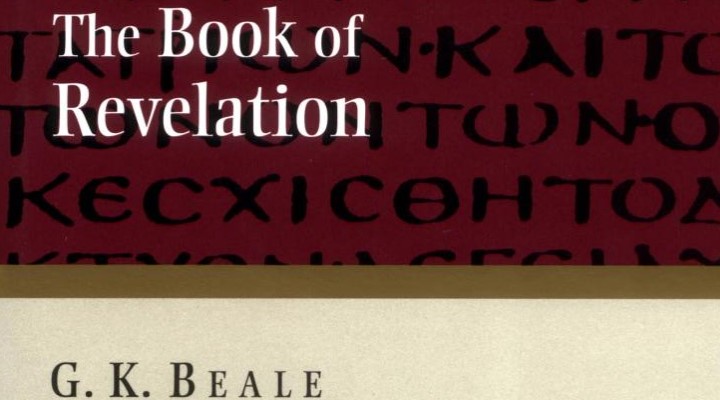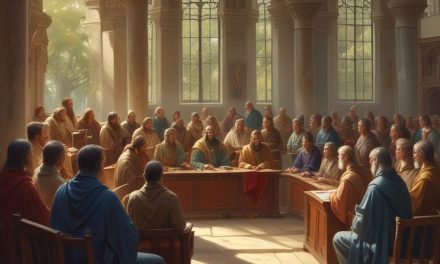I’m happy and blessed to have read Allen Nelson’s book, Before the Throne. There aren’t many books about God’s holiness that accurately convey the wondrous truths of God’s manifold holiness in 12 readable, bite-sized, yet satisfying, chapters. It was a breath of fresh air which humbled me before my God, and brought worshipful reminders to my soul.
Because I like to get the gist and essence of a review without wasting too much time, here are three big reasons why I would recommend that you grab a copy: 1) It is God exalting 2) It is easily quotable 3) It is easily relatable.
It is God Exalting
There was a particular portion in his book that struck an exegetical nerve about my preaching, and was indeed a healthy reminder. In chapter 5, concerning God’s Unmatchable Holiness, Nelson says:
“I don’t need life hacks. I need to see the glory of the God of unmatchable holiness. Practical steps for Christian living have their place, but never let application overshadow exaltation. Preach the Holy One. We were made by God for God and God is the One we need to see in your preaching.”
He goes on to say:
“I am not saying “practical application is a bad thing. We should all eagerly desire to apply what the Bible teaches to every nook and cranny of our lives. But perhaps we could all be better served if we paused to humbly behold the matchless holiness of God before rushing on to practical application.”
In essence, “it’s beholding Him that results in transformation.” And sometimes, what human beings really need is to stand in awe of the beauty and majesty of who God is. And this book does just that! It spends page after page exalting the holiness and greatness of our God. This, by proxy, makes Christianity practical and relevant (although not popular). And this is what gets us through our months and years of trial, temptation, and tribulation, as well as provokes us to walk before God obediently. And most certainly, this is what causes the unregenerate sinner to see himself in desperate need of a Savior.
It is Easily Quotable
Some books aren’t worth quoting. Others are worth quoting, but are too academic for many to comprehend. This book is neither. And that’s not a bad thing. Nor is it an easy task. When discussing the holiness of God, there are a truckload of qualifications and explanations that are beaten into a fine dust before we finally get to the main ideas. Nelson doesn’t take long to get to those points. Which makes for an easily quotable work. Here are a few samples.
Concerning our lax view of God’s unapproachable holiness, Nelson says:
“We are encouraged to come in ‘just as we are’ with no real concern with Whom we are meeting.”
In this particular chapter, we are confronted with our flippant attitudes and ideas about God. He isn’t just some distant celebrity as Nelson points out. He is the holy God of the universe! And without Jesus Christ as our mediator, we would be utterly unable to approach Him as He is.
Moreover, when dealing with God’s unblemishable holiness, he reminds us that:
“It may sound foreign to our western, 21st Century ears, but there is such thing as objective beauty. Beauty isn’t just about what’s ‘in the eye of the beholder.’ God is objectively beautiful beyond fallen human comprehension.”
God is not just beautiful in a poetic sense, but actually “aesthetically” beautiful. This is something our fallen eyes are unable to fully appreciate. But reading what the Scriptures reveal about Him, and seeing how nature declares His glory, we are able to catch glimpses and glimmers of the unblemished beauty of God.
And in writing about His untamable holiness, we read that:
“Too many professing Christians have a god who can be manipulated. The deity they serve is domesticated. He is a god with whom they can negotiate. One who has agreed to allow less than complete surrender and still promises them heaven. This is not the God of the Bible.”
Much like the previous quote, since we have a skewed view of God, we will often create an image of Him that is anything but. In western Christianity, especially American, we have had the unfortunate displeasure to hear this kind of blasphemous cacophony remixed and repeated more often than we’d desire.
Though there are more quotes to share, one in particular struck me to what I believe to be the central diagnosis of western Christianity. Concerning God’s uncompromising holiness, Nelson writes:
“When we compromise the holiness of God, we rip out the need for any penal substitutionary work of Christ.”
I interviewed Nelson to flesh this one out more, but the eternal significance of this statement is worth memorizing and meditating on. One of the fundamental reasons for our irreverence, lack of awe, multiplication of false converts, etc. in our churches is because we have compromised God’s holiness. The devastating effect? Man-centered theology that folds on the necessary proclamation and defense of the soul-saving work of penal substitutionary atonement. This quote accurately captures the panoramic view of what is missing in our preaching today.
It Is Easily Relatable
Why is this so important? Oftentimes, when illustrating the holiness of God, there should be a healthy dose of God’s transcendence that indeed leaves us feeling small – very small – and this is a good thing. The challenge is: how can we communicate majesty in such a way that not only is our mind deeply impacted, but our affections and wills are changed and motivated to live godly as well? God is indeed high and lofty, but our language doesn’t have to be (at least not too much). Nelson answers the challenge by way of useful analogies, relatable anecdotes, and Scriptural examples, so that Before the Throne will rapture your thoughts to behold the Throne of God above, leaving you standing in awe your King and Savior.
-Until we go home






Robert, thank you very much for the kind words, brother. That sincerely means a lot to me that your spirit…